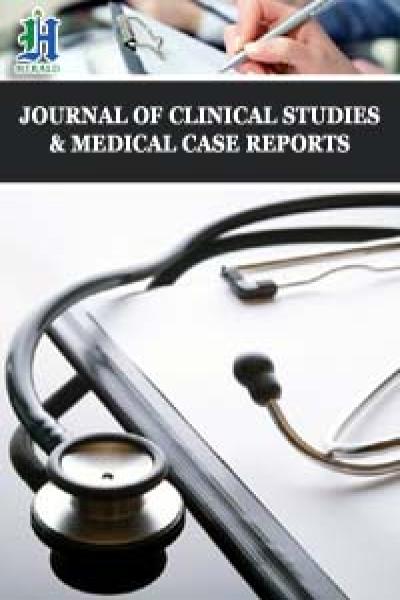
Vaccination for COVID-19 in Patients with Heart Failure with Reduced Ejection Fraction
*Corresponding Author(s):
Igor SchonhofenRoberto Santos General Hospital, Brazil
Email:igorschon@hotmail.com
Letter
Dear Editor,
The new Coronavirus disease was first identified from an outbreak in Wuhan, China, in December 2019. Patients with cardiovascular diseases or risk factors, especially those who had been diagnosed with Heart Failure (HF) have been expressing great concern.This population became more vulnerable when contaminated with the Sars cov 2 virus [1]. Questions have been raised about vaccines as they were developed by research centers and pharmacy industry.
We hereby analyze through an ecological study repercussion of vaccines used in Brazil (Coronavacc, Oxford, Pfizer and Janssen) in patients with HF with Low Ejection Fraction (HFLEF) diagnosis in a reference center.
For 6 months in 2021, 32 patients with HFLEF diagnosis were followed up with phone calls and text messages looking for vaccination cards, vaccination date’s administration, side effects, hospitalizations due to HF decompensation and death. Others data such as maintenance of pandemic careful actions (such as use of masks, social distancing, hygiene), fear of the vaccination, flu vaccination and death after vaccination were also collected.
The mean age of the patients was 53 yearsand 53% was male. All patients were vaccinated with twoapplications. The most commonside effect was headache, body ache and pain at the shot was given with 15% each. Six percent reported fever and 59% of patients did not report any side effects after vaccination with two recommend doses.
Patients also were confident of vaccination protection effect, 75% stated that they felt protected after the first dose, and was increasingly confident with their protection after completing vaccination. Only 9% reported great concern of taking the immunizing agent due to their health condition. In addition, 65% were vaccinatedfor the influenza virus 2021.
Adverse effects are common and typically include pain at the injection site, enlargement of ipsilateral axillary lymph nodes, fever, fatigue, and headache [2]. However, in this study the patients who received the vaccines did not report many important adverse effects.
In other studies, AstraZeneca and Janssen vaccines were associated with an extremely small risk of thrombosis and thrombocytopenia-associated events. Many of these cases were associated with autoantibodies directed against platelet factor 4 (PF4) antigen, similar to those found in patients with autoimmune heparin-induced thrombocytopenia [3,4]. In fact, the risk of thrombosis in people infected with COVID-19 was considerably higher than in people who used immunizations [3,4]. Pfizer and Moderna vaccines were associated with a risk of myocarditis and pericarditis, particularly in male teenagers and young adults, with a higher rate than expected [5]. The CoronaVac were associated with headache, fatigue and local pain [6]. In our study, 40% was vaccinated with Oxford, 34% Coronavac, 21% Pfizer and 0.3% Jenssen. Any patients were hospitalized, developed HF decompensationor died after the first or second applications.
Few studies have associated covid-19 vaccination with HF patients. It is important to perform a larger and prospective study to demonstrate the vaccine benefits and/or collateral effects for HF patients. Thus, with a positive outcome, it will be necessary to organize campaigns towards this specific public in order to increase adherence to this vaccine [6].
This study has limitations such as the small number of patients. Contact made with patients were only through alternative means since the pandemic prevented face-to-face consultations. Another limitationwas the analysis of some subjective questions regarding health measuresof patients during pandemic.
References
- Bansal M (2020) Cardiovascular disease and Covid-19. 14: 247-250.
- Chapin-Bardales, Johanna Gee J, Myers T (2021) Reactogenicity Following Receipt of mRNA-Based COVID-19 Vaccines. JAMA 325: 2201-2202.
- Greinacher A, Thiele T, Warkentin TE, Warkentin TE, Weisser K, et al. (2021) Thrombotic Thrombocytopenia after ChAdOx1 nCov-19 Vaccination. N Engl J Med 384: 2092-2101
- Schultz NH, Sørvoll IH, Michelsen AE, Munthe LA, Lund-Johansen F, et al. (2021) Thrombosis and Thrombocytopenia after ChAdOx1 nCoV-19 Vaccination. N Engl J Med 384: 2124-2130.
- Gargano JW, Wallace M, Hadler SC, Langley G, Su JR, et al. (2020) Use of mRNA COVID-19 Vaccine After Reports of Myocarditis Among Vaccine Recipients: Update from the Advisory Committee on Immunization Practices -United States, June 2021. MMWR Morb Mortal Wkly Rep 70: 977-982.
- Edwards K, Orenstein WA (2022) COVID-19?: Vaccines.
Citation: Schonhofen I, Fernandes A, Macedo T, Silveira B, Costa B, et al. (2022) Vaccination for COVID-19 in Patients with Heart Failure with Reduced Ejection Fraction. J Clin Stud Med Case Rep 9: 0133.
Copyright: © 2022 Igor Schonhofen, et al. This is an open-access article distributed under the terms of the Creative Commons Attribution License, which permits unrestricted use, distribution, and reproduction in any medium, provided the original author and source are credited.

